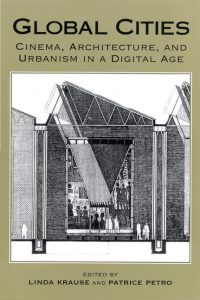
In the reading from “Cinema, the City and The Cinematic” in “Global Cities: Cinema, Architecture and Urbanism in a Digital Age”, the author, Ackbar Abbas focuses on the relationship between the city and the cinema and how cinematic practices can be used to understand urban spaces. Having previously analysed another of Ackbar Abbas’ essays, I felt that going over that would help in my understanding of the text. In the response to Abbas’ “Building on Disappearance: Hong Kong Architecture and Colonial Space”, I mentioned the correlation between the cities decaying identity and the growth of the building as a commodity. Due to my previous analysis of Abbas’ work, I was instantly drawn to his analysis of the city as “forgettable”. Hong Kong’s image as Asia’s World City or City of Vitality and the $9.2 million paid for a “new logo” should have made the city more recognisable in theory. However, Abbas actually shows that focusing on branding a city actually makes the city become generic and hence invisible. A quote that helped me understand his analysis a lot better was “the more complex the city today, the more it becomes a city without qualities.” The irony presented that complexity leads to lack of quality was honestly very confusing at first. I sort of interpreted it as: since every city out there is trying so hard to distinguish themselves they end up becoming quite similar or in the words of Rem Koolhaas “The Generic City”.
Erika Anna Fernandes
3035718395
Enjoy very much your reflection and attempt to unpack Abbas’ point on the complexity of the city. To push this a little further, what exactly is the complexity he is referring to? Density of people, buildings, things, materials, sounds, rules and regulations, networks, relationships, etc.? More objects/items of consumption…? Consider how more of these will lead to a generic urban condition?